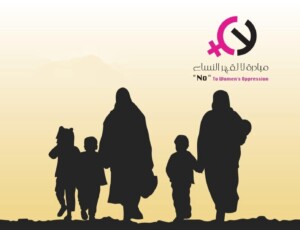Analysis: Six questions on Al Bashir escaping arrest in South Africa
Sudan has never been closer to a regime change since 1989. Six questions on Al Bashir escaping arrest in South Africa.
The world has never come closer to the international arrest of Sudanese President Omar Al Bashir as today. Sudan has never been closer to a regime change since 1989. And it will probably never come closer than this. The 'Bashir escape' from South Africa became a watershed event for international justice and justice in Africa. Six questions on Al Bashir escaping arrest in South Africa.
Why was the escape of Bashir a historical event?
It was the first time an African court ordered the arrest of an active African leader to be arrested and possible handed over to the International Criminal Court for war crimes. At the same time, political African leaders have isolated them collectively by pleading for immunity for grave war crimes. It seems that they have effectively withdrawn from implementing the Rome Statute, while in the meantime obstructing their own rule of law.
How could president Omar Al Bashir get away from South Africa?
It is clear that the government of president Jacob Zuma actively helped president Al Bashir to escape. Deliberately not following a South African court order might even constitute a crime itself. The authorities arranged his plane being moved from a civil airport to the military base Waterkloof. Even there, the immigration officials could have stopped Al Bashir. The authorities played a game by not putting him on the passengers list, pretending not to know that he was on board of his own plane leaving the country at 12:07 local time. Soon after the court ruling, the government lawyer admitted he was on board.
Was the South African court order to arrest Bashir a surprise?
Not at all, and it certainly was no surprise for the South African government, otherwise South Africa could have waited for the court to rule before they helped him to escape. The government was already warned beforehand not to allow Al Bashir in their country. He is clearly not enjoying immunity according to international and domestic law. Only the United Nations can provide immunity to people who are wanted by the International Criminal Court.
What could be the consequences for South Africa?
Allowing a man charged for genocide and other war crimes to flout international justice will hit South Africa with a poor reputation. National media in South Africa call it 'a debacle'. The government of South Africa now has joined effectively the African Union tendency to claim immunity for violent rulers. However the South African court showed a total independence towards political pressure.
Is it a surprise that African leaders are against ICC targeting mainly African countries?
The campaign against the ICC is quite cynical as the African Union is not yet able to provide its own alternative for justice. South Africa is a signature to the Rome Statute in support of the ICC. The victims of the current regimes like the one of Khartoum are the Africans themselves, not the former colonial powers. People congratulating Al Bashir show cynicism towards the African victims.
Will this help Al Bashir and Sudan?
Despite a happy arrival and victorious propaganda, the case will not cover up that Al Bashir has become a real fugitive according South African and international law. Other African countries with functioning courts will not be happy to invite him for a next meeting. Inside Sudan people look increasingly at Al Bashir as a criminal who just escaped prison. Such a breakout is nice for his brothers in arms, but for the working class it is economically and politically not helpful. The country Sudan had never come closer to a government change since 1989. The current regime might now drag on for another few years.











 and then
and then